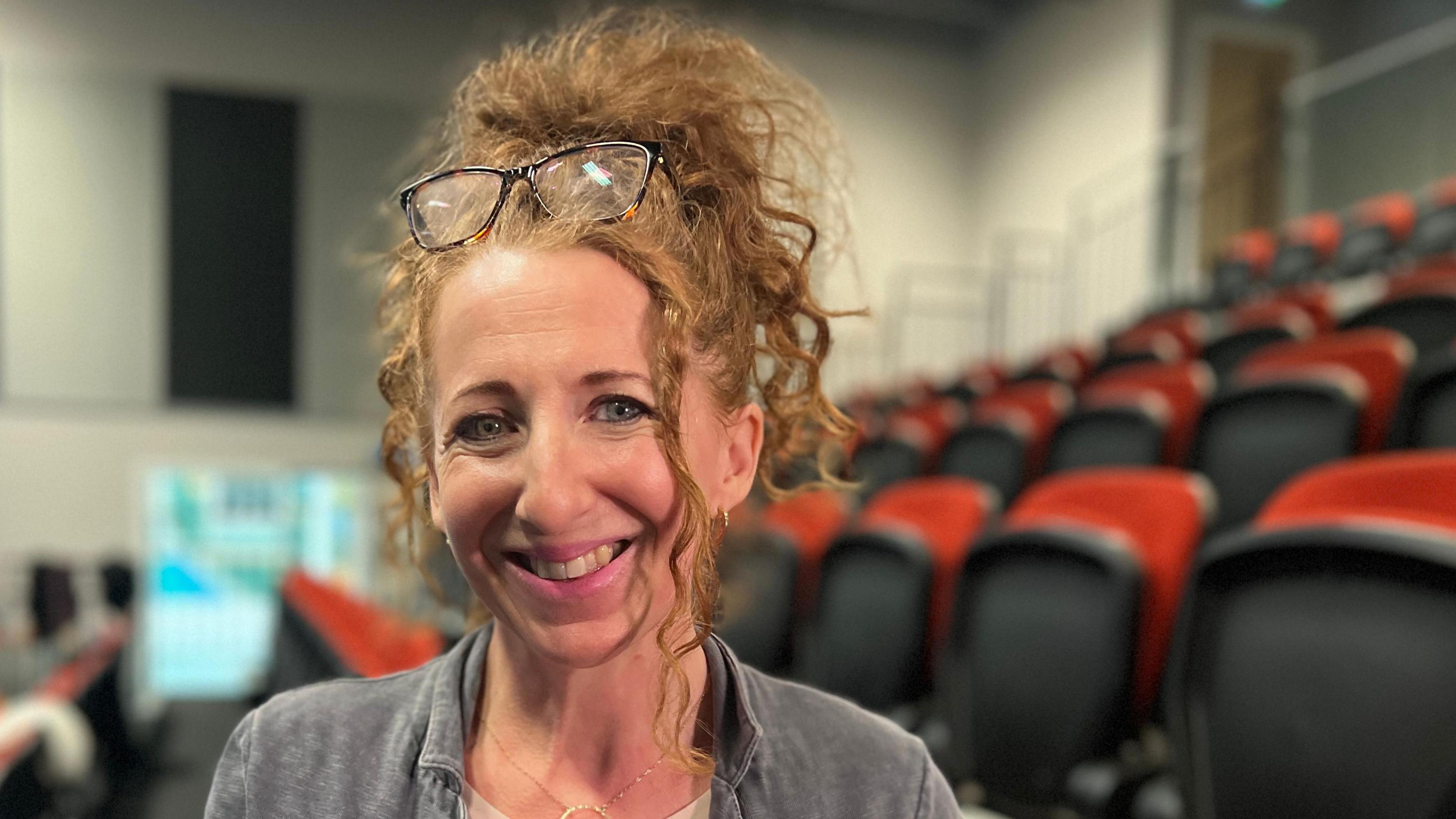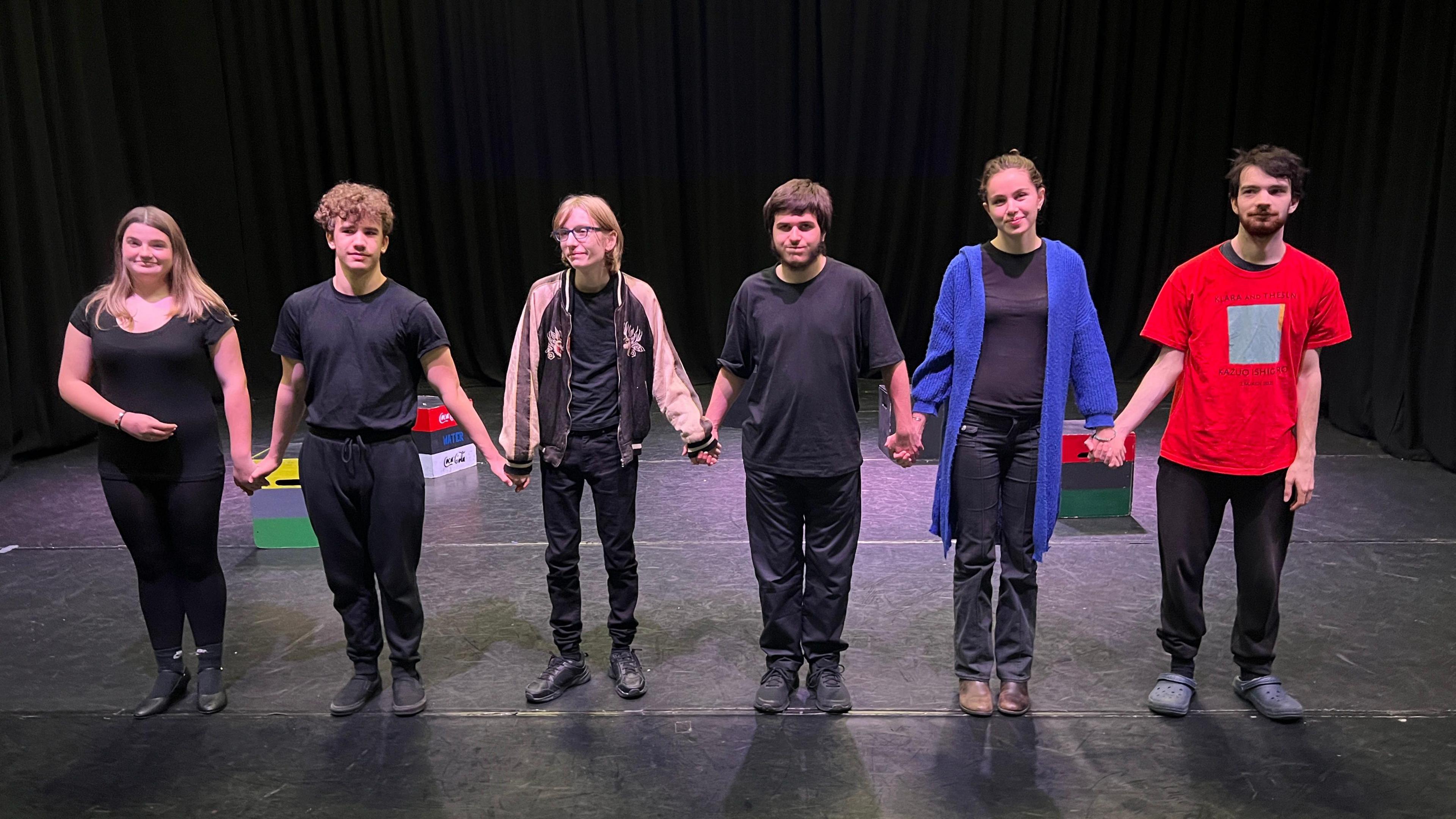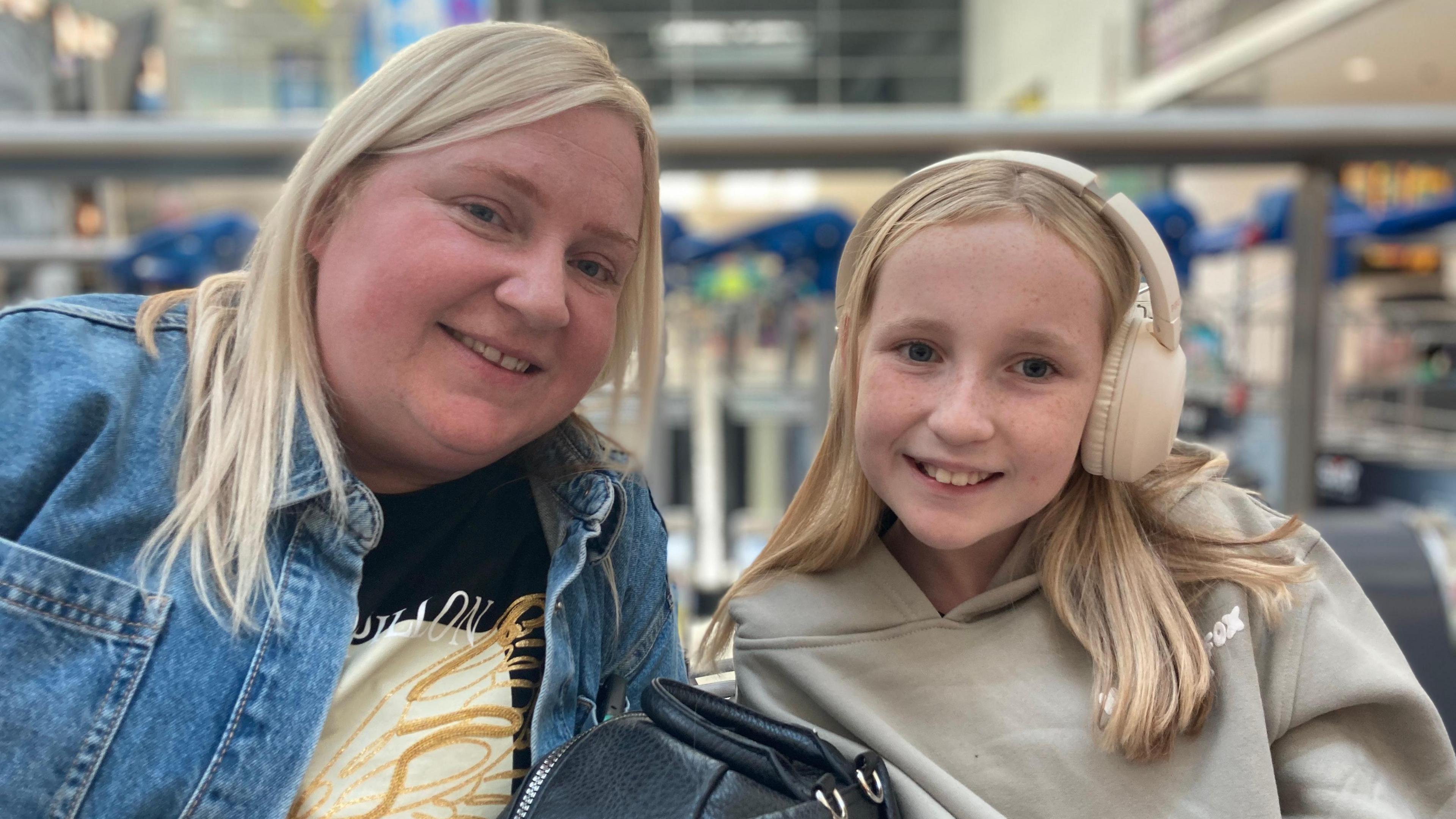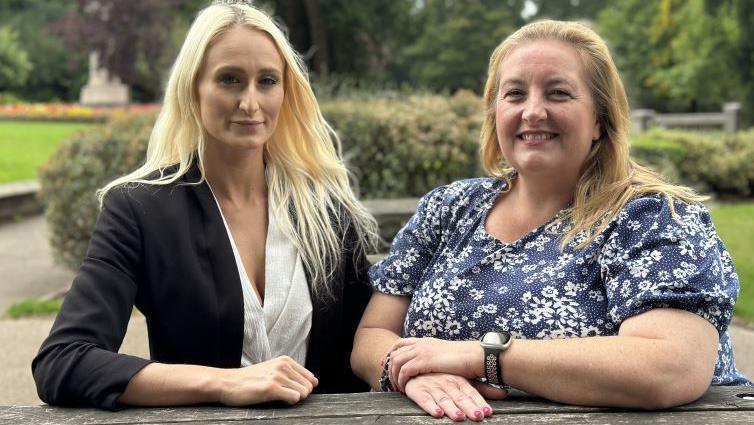Theatre company shines spotlight on autism in play

Founder Kate Khairdean says the fledgling troupe has attracted a "lot" of interest
- Published
A fledgling theatre troupe hopes its first production will tell theatregoers some of the things they do not know about autism.
Members of The Sixth Sense Collective believe their performance of Irish playwright Jody O’Neill’s “What I (don’t) know about Autism” in Cambridge will put the condition in the spotlight.
Some members of the company, formed in Cambridge a year ago, are on the autism spectrum.
Company founder Kate Khairdean said she hoped to give young talent a chance to shine and raise awareness of autism, external.

Cast members are preparing to perform Jody O'Neill's play, "What I (Don't) Know About Autism"
Sixth Sense actors are due to perform “What I (don’t) know about Autism”, external at The Atrium Theatre, external in Cambridge on 1 and 2 November.
A company spokeswoman said several cast members had neurodiversity, external diagnoses and most were in their teens.
She explained: "While there are a number of fantastic theatre companies for adults and/or children with learning difficulties and/or autism, The Sixth Sense Collective is believed to be the first theatre company in the UK specifically for neurodivergent young performers."
'Right material'
Ms Khairdean, a 48-year-old drama teacher at Gretton School, external in Girton, Cambridgeshire, said the company was taking its first step on to the stage.
"This is phase one, and hopefully it will go well," she told the BBC.
"We have actually already had quite a lot of interest, and we hope to have more productions."
She said company members had given careful thought to what the first production would be.
"It's a question of finding the right material," she added.
"When I read this, I thought it was the one, and when everyone else read it, we all felt the same."
What is Autism?
The National Autistic Society (NAS) said autism was a "spectrum condition that affects people in different ways".
It said people on the autism spectrum might:
Have difficulty with interpreting verbal and non-verbal language such as gestures or tone of voice.
Engage in "repetitive" behaviours to help calm themselves when stressed or anxious.
Experience oversensitivity, or undersensitivity, to sounds, touch, tastes, smells, light, colours, temperatures or pain.
Have intense and "highly focused" interests.
Show "extreme anxiety" and experience difficulty "recognising and regulating" emotions.
Go into "meltdown or shutdown".
The NAS said the definition of autism had changed over the decades and could change again as "we understand more".
"Some people feel the spectrum is too broad, arguing an autistic person with 24/7 support needs cannot be compared with a person who finds supermarket lights too bright," the society said on its website.
"The National Autistic Society thinks the UK government should do more research into autism prevalence."
It added: "Until that research is done, we believe that more than one in 100 people are autistic, which means more than 700,000 people in the UK."
Get in touch
Do you have a story suggestion for Cambridgeshire?
Follow Cambridgeshire news on BBC Sounds, Facebook, external, Instagram, external and X, external.
Related topics
- Published21 October 2024

- Published3 September 2024

- Published4 April 2024
